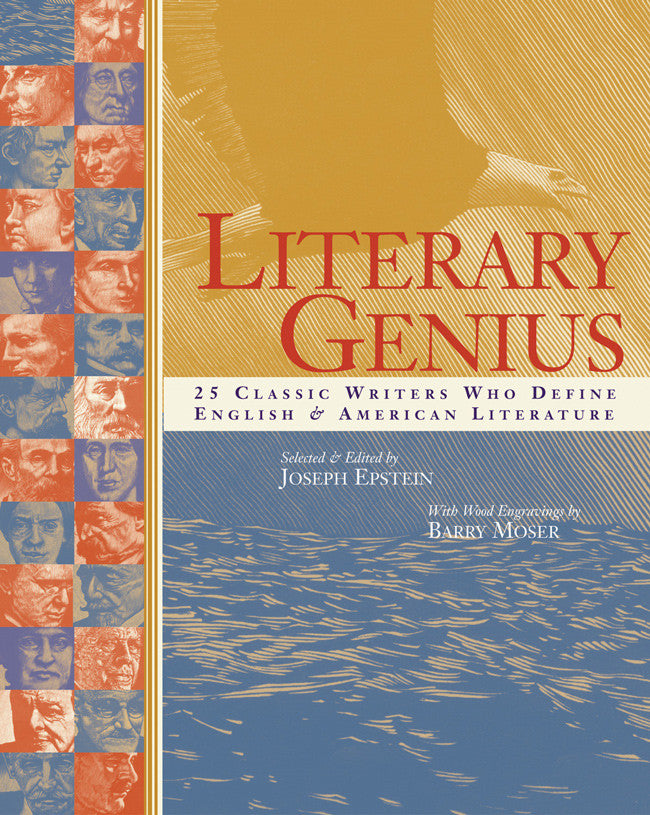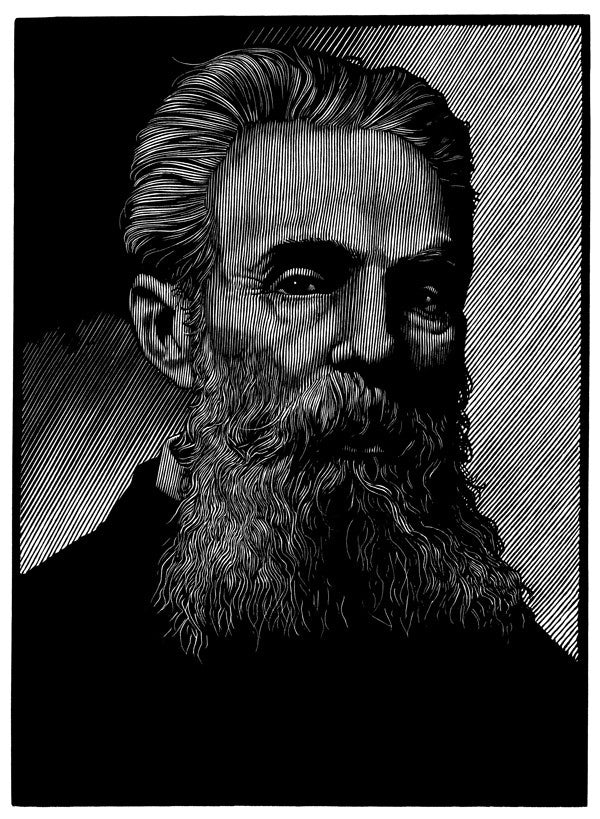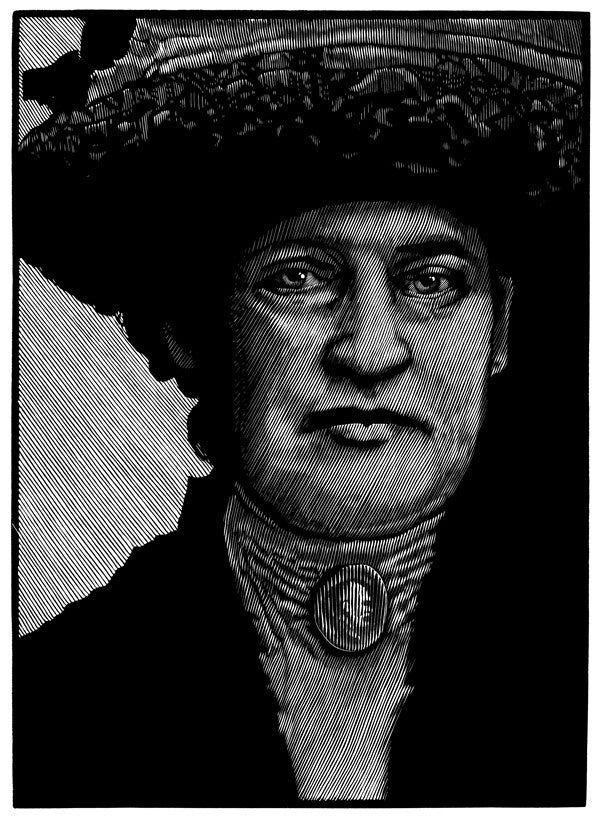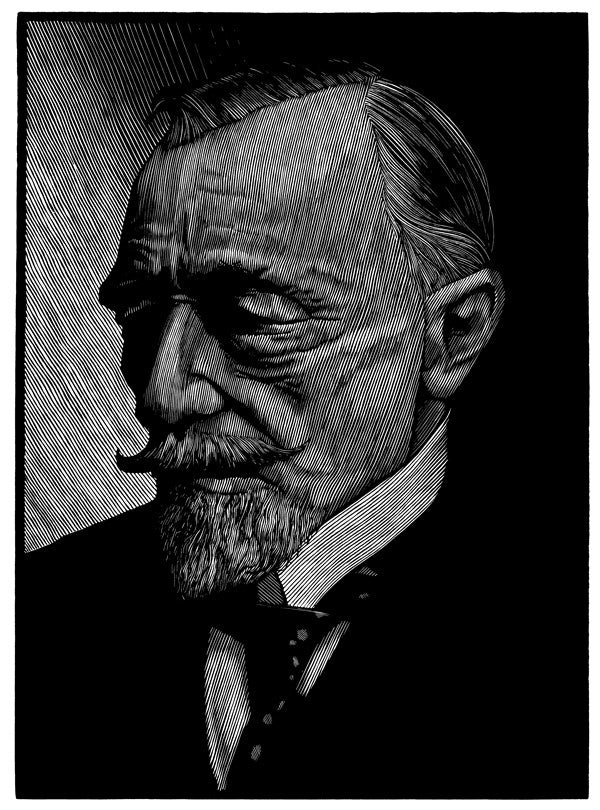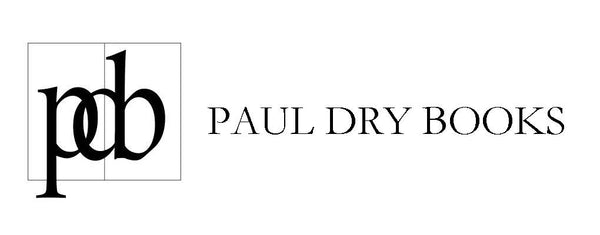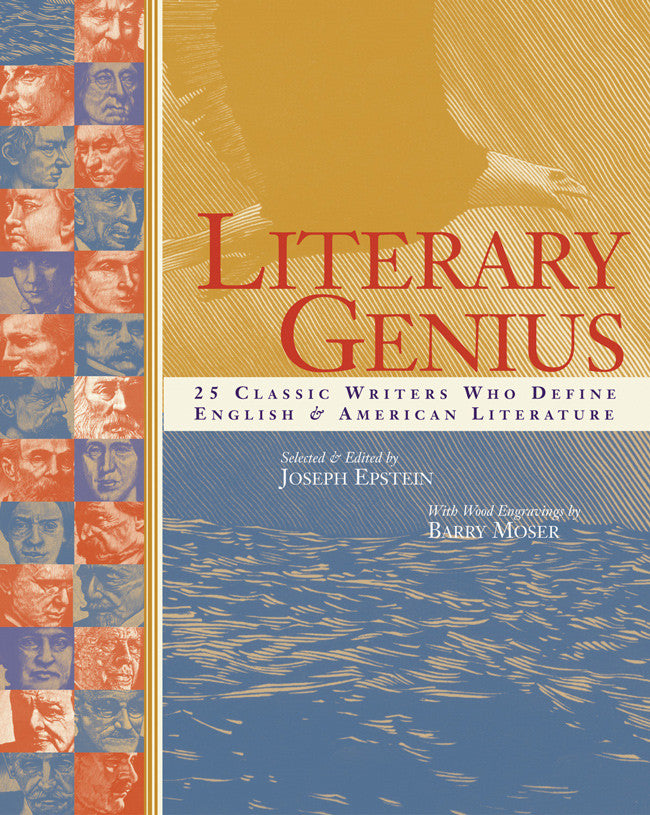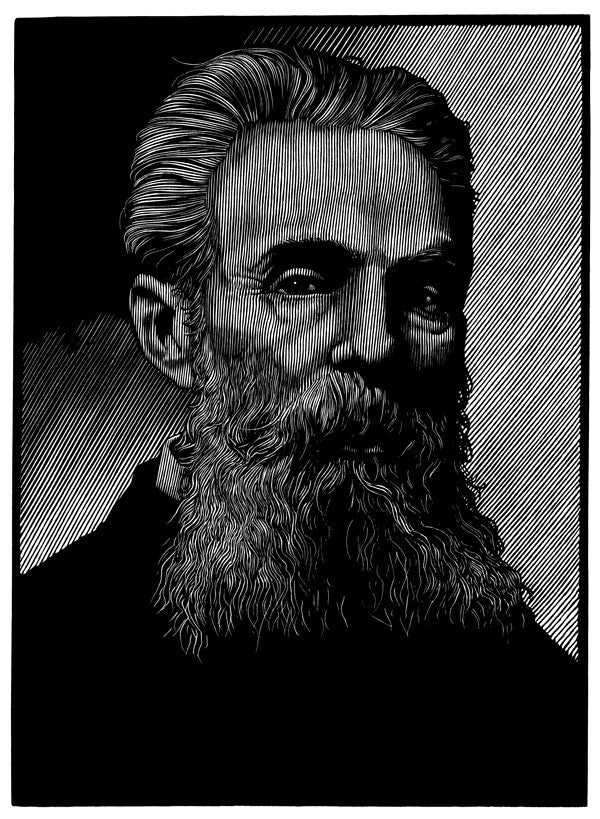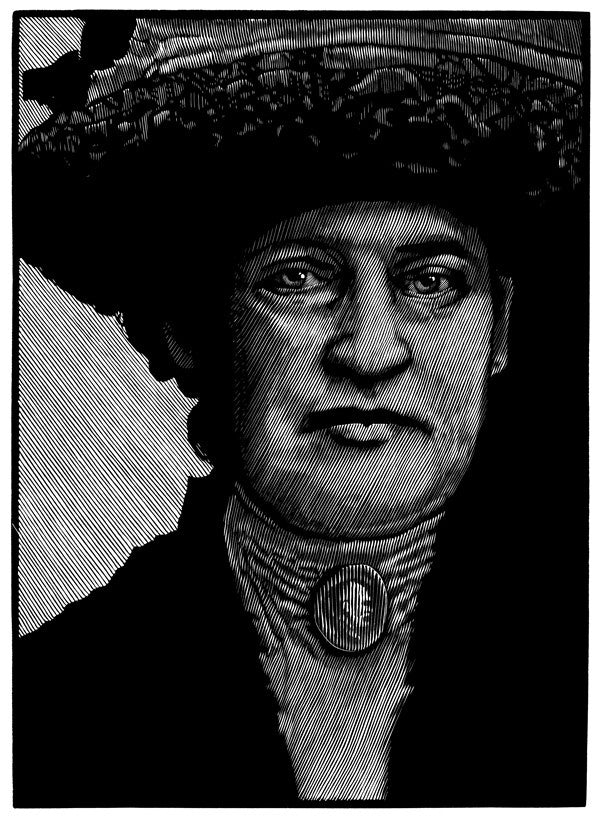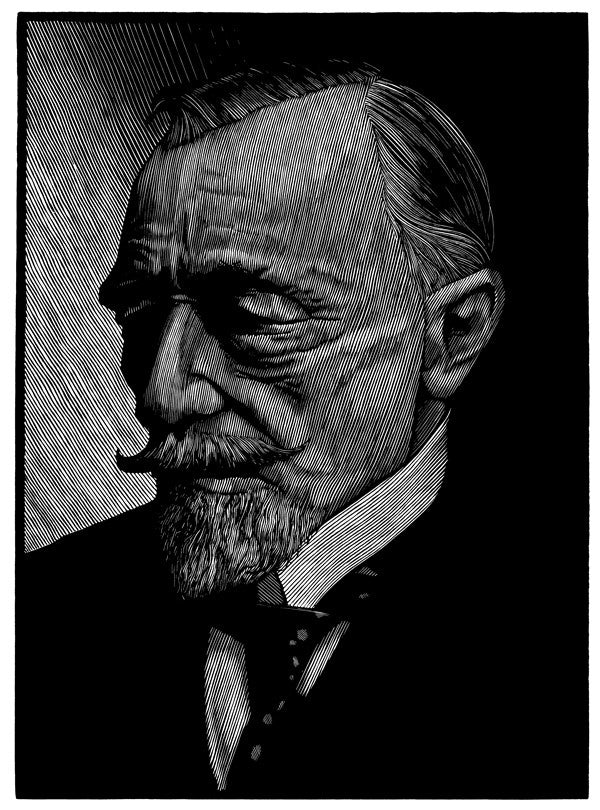Literary Genius
Literary Genius
Joseph Epstein
Couldn't load pickup availability
Literary Genius: 25 Classic Writers Who Define English and American Literature / Wood engravings by Barry Moser / 246-page hardback / 7.38" x 9.25" / ISBN 978-1-58988-035-1 / Publication Date: October 2007
Our finest essayists discuss six centuries of literary genius.
"Genius is one of those words upon which the world has agreed to form no clear consensus," Joseph Epstein tells us in his introduction. How then shall we define "literary genius"? In this collection, twenty-five contemporary authors endeavor to answer that question by considering twenty-five classic writers and their enduring works.
We learn that, more important than mere originality or creativity, it is the ability to make us experience the world in new ways that sets these writers apart. "My task," Joseph Conrad wrote, "is by the power of the written word to make you hear, to make you feel—it is above all to make you see. That—and no more, and it is everything."
Wood-engraved portraits and illustrations by renowned artist Barry Moser accompany each essay.
Joseph Epstein, from his introduction: "Literary genius comes in many varieties. Some literary geniuses seem natural (Charles Dickens, Mark Twain), others cultivated (George Eliot, Henry James). Some are prolific (Wordsworth, Whitman), some are more carefully concentrated (Jane Austen, T. S. Eliot). Some literary geniuses are stimulated by the difficult (Alexander Pope, John Milton). Some require absolute originality — entailing the need to invent their own style — to convey their vision (James Joyce, Ernest Hemingway). Some have perfected a form (Pope, the heroic couplet), some have tried to kill off a genre (Joyce, the novel). Not some but all literary geniuses can be read again and again, down through the generations. As Hilary Mantel, in her essay on Jane Austen, writes: 'Surely this is the definition of genius in a writer: the capacity to make a text that can give and give, a text that is never fully read, a text that goes on multiplying meanings.' Timelessness this is called, and it is another of the hallmarks of literary genius."
- Tom Shippey on Geoffrey Chaucer
- Lois Potter on William Shakespeare
- Reynolds Price on John Milton
- Anthony Hecht on Alexander Pope
- David Bromwich on Samuel Johnson
- David Womersley on Edward Gibbon
- Dan Jacobson on William Wordsworth
- Hilary Mantel on Jane Austen
- Frederic Raphael on William Hazlitt
- Eavan Boland on John Keats
- Daniel Mark Epstein on Nathaniel Hawthorne
- A. N. Wilson on Charles Dickens
- Justin Kaplan on Walt Whitman
- William H. Pritchard on Herman Melville
- Paula Marantz Cohen on George Eliot
- Bruce Floyd on Emily Dickinson
- David Carkeet on Mark Twain
- Joseph Epstein on Henry James
- Elizabeth Lowry on Joseph Conrad
- Stephen Cox on Willa Cather
- Robert Pack on Robert Frost
- John Gross on James Joyce
- John Simon on T. S. Eliot
- Joseph Blotner on William Faulkner
- James L. W. West III on Ernest Hemingway
Reynolds Price on John Milton: “When Milton died in 1674, just short of the age of sixty-six, this man—who had begun his adult life with such an outrageous announcement of prophetic destiny, who had detoured his best gifts for twenty years through the bloody exchanges of a civil war and its grim aftermath, who had endured unusual domestic trials and finally been totally blinded—could reflect on an ultimate triumph unlike any other in literature… [H]e lodged himself where he longed to be—as a spur in the depths of our minds, a balm to our souls, a companionable hand in our solitary journey.”
Eavan Boland on John Keats: “‘I think I shall be among the English Poets after my death.’ So wrote John Keats to his brother in the Autumn of 1818. It was an extraordinary claim for a twenty-three-year-old, whose first book of poems had been savagely dismissed, whose financial circumstances were hopeless, and who was only three years from his own death. Yet, in time, the claim would come to fit the circumstance. No poet in history has had a more extraordinary path from start to finish than John Keats.”
Stephen Cox on Willa Cather: “Cather is one of very few intellectual writers who appeal to readers of all stations and classes. She is also one of very few writers of the first rank for whom American readers feel genuine affection. . . . America’s continuing and growing affection for Cather is a remarkable fact, because she did nothing whatever to court popularity. She wrote for the sake of the writing itself, caring nothing about whom she pleased or offended.”
John Simon on T. S. Eliot: “Not many geniuses were pleasant; some quite unpleasant—think Wagner, Rimbaud, Brecht. One may find both Thomas Stearns Eliot’s life and work unpleasant, which he ironically acknowledges in the ditty beginning, ‘How unpleasant to meet Mr. Eliot.’ But the job of the genius is not to be pleasant but to create works that last down the ages by revealing certain significant perceptions in a style that sticks in the reader’s mind, if not indeed to his ribs. Eliot has done that, at times in complex verse or prose formulations, at others with simple and penetrating phrases giving meaning the added benefit of image, rhythm, and cadence.”
Joseph Epstein is the author of nineteen books, most recently In a Cardboard Belt!: Essays Personal, Literary, and Savage. For more than twenty years he was editor of The American Scholar. A contributor to The New Yorker, Commentary, The Atlantic, the Times Literary Supplement, and other magazines, he also taught for many years in the English Department at Northwestern University.
Barry Moser is an illustrator, author, and designer whose work appears in museums and libraries around the world. He has published nearly three hundred titles, including Lewis Carroll's Alice's Adventures in Wonderland, which won the American Book Award in 1983. In 1991 he won the Boston Globe-Horn Book Award for his collaboration with Cynthia Rylant, Appalachia: The Voices of Sleeping Birds. A member of the National Academy of Design, he has served on the faculty of Rhode Island School of Design and is currently on the faculty of Smith College.
